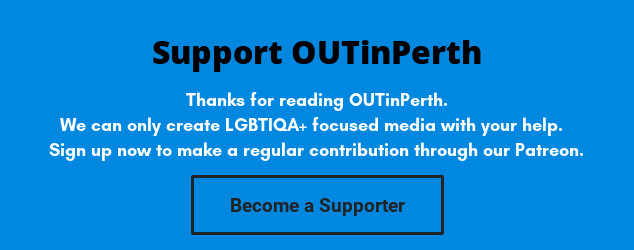
Having conversations about the mental health and wellbeing of people we care about can be hard. Sometimes we might be worried about someone that we love. We might see them acting differently from how they usually do, maybe they have spoken with us before about their mental health, or we might just a get a weird feeling when we are spending time with them that something just isn’t right.
We want to help, we want to make sure that person is okay but we don’t know what to say and we are afraid that we might make everything worse. Worrying about saying the wrong thing can make us feel like there is nothing we could possibly do to help. We may even feel like it is not our place to ask and convince ourselves the person would surely tell us if something was wrong and they needed our support. Or maybe, sometimes we don’t ask how someone is going because we are afraid of the answer we might get.
What we do know is that when people are struggling with their mental health it can be really difficult to talk to someone about it. Shame, stigma and not wanting to burden other people can be barriers to people asking for help when they need it.
So, let’s look at some things we can do and say that are known to be helpful when someone might need a little support.
I’ve noticed…
The easiest way to start the conversation is to simply name what we have seen, heard, noticed or felt about what has been happening for that person and let them know that this has made you worried about how they are doing.
“I’ve noticed that you haven’t been going out as much and you just seem to be different from your usual self. It makes me wonder whether something is going on. How have you been feeling?”
I’m here for you
Anxiety, depression, worry, and thinking about suicide can make people feel very isolated and alone. So, telling someone that you are there for them can be really powerful. The most important part of doing this is to explicitly mention that this includes being there for their mental health needs. People might not have the words to say what is happening, or they may be afraid that we can’t or won’t talk about mental health – so it becomes our job to signal clearly that we are open to these types of conversation.
“When I say that I am here for you, know this means that you can tell me anything. If you need to talk about your mental health, that you aren’t coping at the moment, something that is worrying you, or that you are thinking about suicide- you can tell me.”
This might be hard sentence to say but it is one of the best ways we can create safe spaces for folks to talk about their feelings. I can tell you that the more you ask this, the easier it will become, but if you are really worried about someone and you feel that it is too hard for you say this to them right now, just find a mutual trustworthy friend that you can confide in who is able to have this conversation. This is not betraying the person you are worried about. It is simply finding someone that can meet their needs at this moment. Doing this is as powerful as if you had of had this conversation yourself.
Tell me more
Not knowing what to say when someone tells us their story can be really hard. We can want to take away their hurt and help them see all the good things in life and it can be really difficult to hear someone we care about talking about things that are painful for them. The thing is, for someone who is struggling, being able to talk about all the hard stuff is exactly what they need. I once heard this explained like a soft-drink bottle that had been dropped on the ground and is all fizzed up. We are there to gently take the lid off and help them let out all that stored-up fizz so there is space created to start to see things differently and see that the fizz might be full to the top right now, but it won’t always be the case.
So, what can we say here? Nothing! All we need to do is listen.
“So you said you were struggling/having a hard time, tell me what’s been going on”
You don’t need to have any or all of the answers to magically solve their problems. There will be space and time for this further down the track.
Whoops!
Sometimes in our attempts to make someone feel better we can accidentally fall into the role of offering problem solving, solutions, or trying desperately to make people focus on all the good things. This drive comes from a good place but we need to make ourselves remember that this not what this person needs from us. They simply need us to listen. If we accidentally forget this we can simply own what happened, apologise and start again.
“I’m sorry if I said the wrong thing/tried to solve everything/talked too much and stopped listening- I just care about you, so I panicked a little. Can we start again? You were saying….”
We are going to need some help…
Once the person has had the opportunity to tell you what is going on it’s an ideal time to think about the types of supports that might be helpful. No one person has all the answers and no one person can hold every need that a person has. It takes a village people! Having a good idea of the services out there will be really helpful here.
“You have a lot going on. Have you ever used a support or service that has been helpful for you before? I know of a few suggestions of some places to start if that helps?”
If a person is resistant to this they may need a little more time to talk about their feelings or we might be able to help them being open to this step by saying something like;
“Do you feel any better since you have spoken to me? You might feel even better if you speak to someone else. I don’t have all the answers but together I know we will find someone to help”
Don’t ever leave the conversation with the two of you. Promise confidentiality (don’t go around telling all their friends) but NEVER secrecy. Let them be in control of who else they talk to as long as it is someone. Different groups and services work for different folks. There are some ideas of where to start at the end of this article.
If you are ever concerned about the immediate safety of someone – get help ASAP.
You can contact a crisis line for support and information, speak with someone else in their life or contact emergency services.
Don’t forget to ‘Download’
Being worried about someone and being a support for them can be rewarding but it can also be tiring and stressful. Remember those supports you spoke about with them? Use those supports yourself to debrief, seek advice and as a form of self-care. Taking care of yourself is the only way you will be able to be in the right place to help others. And if you ever need support yourself- practice what you preach and tell someone. Supporters need support too!
Supporting each other is what the LGBTIQ+ community does best and each time we have conversations about mental health and wellbeing we make it a little easier for people to talk when they need to. I am so very grateful to have so many amazing queer folks that support me when I need it and who I can lend my ears and heart to when they need me.
Thanks for helping create safe spaces to have conversations that can change lives.
Big love to you all.
Bella Broadway
Do you need some support?
If you are struggling with anxiety or depression, support and counselling are available from:
Lifeline: 13 11 14 (24 hour service, all year round)
Beyondblue: 1300 22 4636 and www.beyondblue.org.au
QLife: 1800 184 527 and www.qlife.org.au
(QLife are a counselling and referral service for Lesbian, Gay, Bisexual, Transgender and Intersex (LGBTI) people.)






